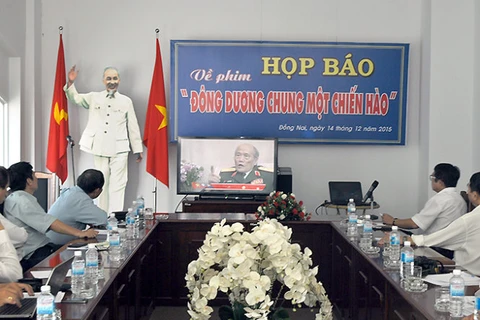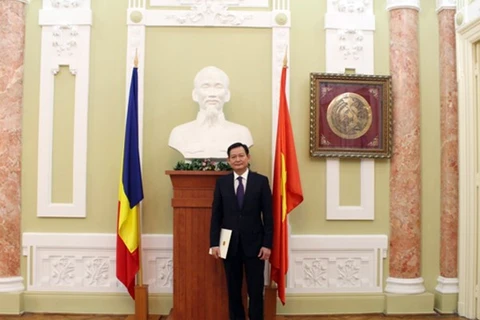Hanoi (VNA) - Over a century after Paul Doumer, former governor general of French Indochina, wrote his memoir on the Indochinese, his book continues to attract Vietnamese and foreign experts among the public.
A roundtable discussion on his book Indochine Francaise - Souvenirs (French Indochina Memories) was held in Hanoi on April 6 on the occasion of the book’s publication in Vietnamese.
The book, which was highly praised by both French and Vietnamese experts, was translated from French to Vietnamese by writer Nguyen Xuan Khanh.
The 424-page memoir follows Doumer’s five years as governor general from 1897 to 1902. He wrote the book in 1903 upon his return to France from Indochina.
Through seven chapters, the book talks about the people, culture, customs and traditions of the grouping of French colonial territories in Southeast Asia, comprising Vietnam, Laos and Cambodia, at the beginning of the 20th century.
Experts said the book was a useful source of documentation for those interested in the history and ethnography of the three Indochinese countries under French domination.
Khanh said the book gives readers first-hand information about Vietnam as it transitioned from feudalism to modern society.
In the book, readers learn that Hanoi, under Doumer’s administration, became the first city in Asia to get electricity.
Doumer also said the Vietnamese people stood apart from their neighbours for their intelligence, diligence and courage.
A series of interesting stories about Vietnam during the late 19th century to early 20th century are mentioned in the book. They include the construction of the Long Bien Bridge, originally called Paul-Doumer Bridge, crossing the Hong (Red) River, the construction of the Thanh Thai Bridge crossing the Huong (Perfume) River in central Hue City and the Binh Loi Bridge crossing the Sai Gon River. Doumer also talks in his book about his great determination in constructing the trans-Vietnam railway.
Khanh said, “I read this book as passionately as I would read a novel. With his beautiful writing style, he helped readers learn more about the Indochina of that era, its geography, climate, products and people.”
At the roundtable, experts expressed their opinions of Paul Doumer, his contributions to Hanoi, his policies on socio-economic development and management of Vietnam in the late 19th century and his merciless exploitation of the locals.
“Paul Doumer acted wholly in the interests of France. However, he was an economic expert with great vision. He could do many things for the modernisation and urbanisation of Indochina,” Khanh said.
Ambassador Duong Van Quang, head of the Vietnamese mission to UNESCO, said, “As the book shows Paul Doumer’s pride in serving France and for having done his job better than anyone else, many of his opinions on the historical events mentioned were very subjective. It differs greatly from the history of the first French colonial exploitation of Indochina that we have always known. Those historical years should be studied carefully and objectively.
“You will be attracted by the author’s beautiful writing style. In particular, you will discover new things that you had never read before about this period of Vietnamese history,” he added.
Nguyen Thua Hy, who revised the book’s Vietnamese translation, said, “Paul Doumer was a controversial person. Some praised him as an independent, confident person. Some criticised him for being arrogant and ambitious and for exploiting the local inhabitants of colonised countries. However, everyone affirms that Doumer was an important historical phenomenon who left a profound stamp on Vietnam and France in modern history.”
The book is available in the country’s major libraries.-VNA






















